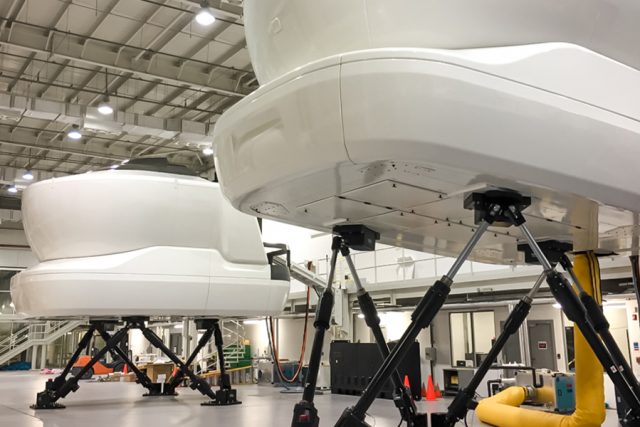When and individual or corporation owns an aircraft, they need pilots as part of their team. To better understand what makes a good pilot it helps to know a bit about how pilots actually become pilots who will keep you safe and flying.
To become a pilot, it requires a combination of skills and aptitude that combines the use of advanced technology with quick thinking and sound judgement. In the private aviation field, pilots come from all walks of life and all corners of the world. But how did they get there? It starts with intricate training programs that build the kind of knowledge and experience that build the foundation for a long-term career. At Avionco, we’ve trained some of our own pilots and we know what it takes. In today’s blog, we’ll take a look at the five critical elements that form sound training programs that create successful pilots.
Ground School
The journey to becoming a pilot begins with a solid grounding in aviation theory. Ground school is the first crucial element of pilot training. This phase covers a wide array of topics including aerodynamics, meteorology, navigation, air traffic control procedures, aviation regulations, and aircraft systems. Aspiring pilots must prove their understanding of scientific and regulatory fundamentals that will serve as the background for to making informed decisions while in the cockpit.
The Flight Simulator
Flight simulators are a remarkable tool for developing critical flying skills without the risks associated with actual flight. Simulators replicate real-world flight scenarios, allowing trainees to practice everything from takeoffs and landings to handling emergency situations. This element of pilot training helps students become familiar with cockpit instruments, flight procedures, and emergency protocols in a controlled environment.
Hands-On Flight Training
The is where theory becomes reality. The heart of pilot training lies in hands-on flight instruction. Pilots transition from the classroom and simulators into actual aircraft where they learn the practical aspects of flying. This phase includes flight maneuvering, navigation, communication with air traffic control, and the execution of takeoffs and landings. Flight training progressively advances from basic flight skills to more complex operations as they become more experienced. While the minimum standard is approximately 45 hours of flight, t is likely a new pilot will have spent up to 100 hours flying aircraft before becoming active.
Getting From Here to There
Once the basics are understood and practiced, one of the most important elements of training is how to get from a Point A to a Point B anywhere in the world. Therefore, a key element of training is on navigation and cross-country flights. Pilots must learn to navigate through airspace, read aviation charts, plan routes, and account for variables like weather conditions and fuel management. Cross-country flights take trainees on longer journeys, honing their navigation skills and decision-making abilities. This phase is essential for building confidence and competence in managing flights to various destinations. This is also practiced simultaneously in the simulator environment where issues and crises can be created so that pilots can safely learn and practice emergency procedures.
Emergency Procedures and Safety
There is minimal room for error when speeding through the sky in a white tube strapped to a rocket, so pilot training places significant emphasis on emergency procedures and safety protocols. Trainees learn how to respond to a range of critical situations, such as engine failures, cabin depressurization, and adverse weather conditions. Understanding and executing these procedures can mean the difference between a safe landing and a potential disaster. Safety culture is ingrained in pilot training, reinforcing the importance of risk assessment, crew communication, and situational awareness.
It’s fair to say that pilots are a special kind of people who take an early passion for flight and hone it to a high level of skill unimagined in many other careers. Expert training is the foundation on which your pilot will keep you and your passengers safe while you enjoy the benefits of private flight.
